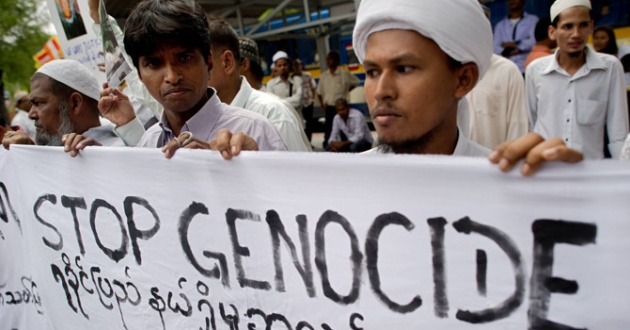
“Reports indicate that the initial swift response of the authorities to the communal violence may have turned into a crackdown targeting Muslims, in particular members of the Rohingya [Muslim] community,” according to the UN High Commissioner for Human Rights, Navi Pillay. A day after we wondered why no more resolute response from the UN as to what appears an accelerated pace of ethnic cleansing directed at the historically marginalized Rohingya minority in Burma, (See our Blog from July 26, 2012-“What is Truth of Burma and the Rohingya?”, the UN High Commissioner has reacted with clarity: “We have been receiving a stream of reports from independent sources alleging discriminatory and arbitrary responses by security forces, and even their instigation of and involvement in clashes,”
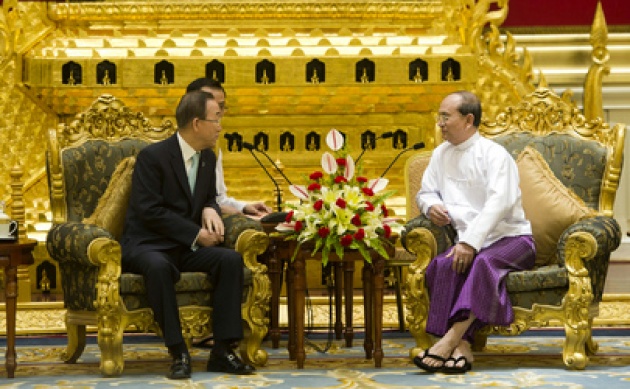
According to the Office of the High Commissioner for Human Rights (OHCHR), the violence between ethnic Rakhine Buddhists and Rohingya Muslims in the state, located in the country’s west, was triggered when an ethnic Rakhine woman was raped and murdered on 28 May. This was followed by the killing of 10 Muslims by an unidentified mob on 3 June. Ms. Pillay called for a prompt, independent investigation, noting that the crisis reflects the long-standing and systemic discrimination against the Rohingya Muslim community, who are not recognized by the Government and remain stateless. “The Government has a responsibility to prevent and punish violent acts, irrespective of which ethnic or religious group is responsible, without discrimination and in accordance with the rule of law,” Ms. Pillay said. (Above Photo of UNSG Ban Ki-moon with Myanmar President Thein Sein during this spring’s visit)’
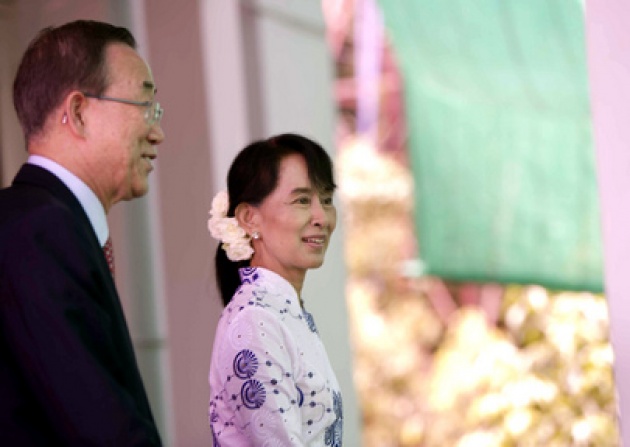
Ms. Pillay has also called on national leaders to speak out against discrimination, the exclusion of minorities and racist attitudes, and in support of equal rights for all in Myanmar. She also stressed that the UN was making an effort to assist and protect all communities in Rakhine state. “Prejudice and violence against members of ethnic and religious minorities run the risk of dividing the country in its commendable national reconciliation efforts, undermine national solidarity, and upset prospects of peace-building,” Ms. Pillay said. We again ask if the international community including Washington and London have been too quick to “celebrate” Myanmar’s supposed democratic and human rights advances. There is perhaps too much of seeing progress through the political opposition including Aung San Suu Kyi (Above with UNSG Ban-Ki-moon) while the military junta seeks to reassert its credentials to rule autocratically on basis of ethnic/religious chauvinism. Read "Is Myanmar Optimism for Democracy Overdone?" As we have pointed out, it is not only the Rohingya that remain thus particularly targeted but also other minority groups as the Karen and Kachin (see below Photo). See our Blog for Film "Regime Divides Opposition & Minorities?"
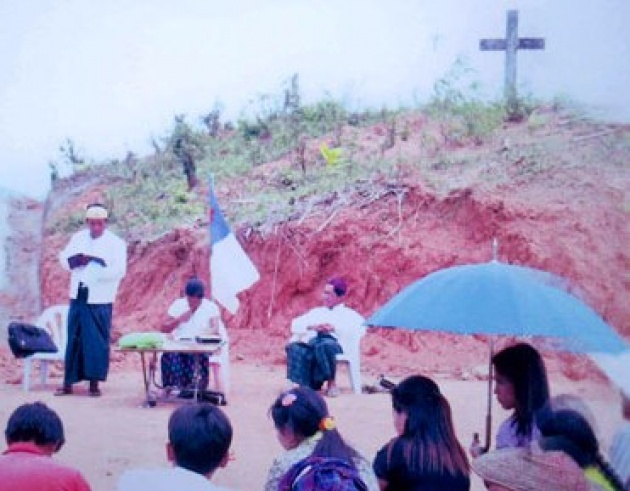
The Special Rapporteur on the human rights situation in Myanmar, Tomas Ojea Quintana, is due to visit the country next week, and his mission there will include a visit to Rakhine state. Ms. Pillay welcomed the Special Rapporteur’s visit, but noted that “while he will be able to make an initial assessment during his one-day visit, this is no substitute for a fully-fledged independent investigation.” (Below Photo of US Secretary of State Hillary Clinton in visit with Myanmar President Thein Sein).
Ambassador Muhamed Sacirbey - FOLLOW mo @MuhamedSacirbey
Facebook-Become a Fan at “Diplomatically Incorrect”
Twitter – Follow us @DiplomaticallyX
See more at our Popular Video Blogs & Current News Event Articles at http://diplomaticallyincorrect.org/c/war-crimes-justice
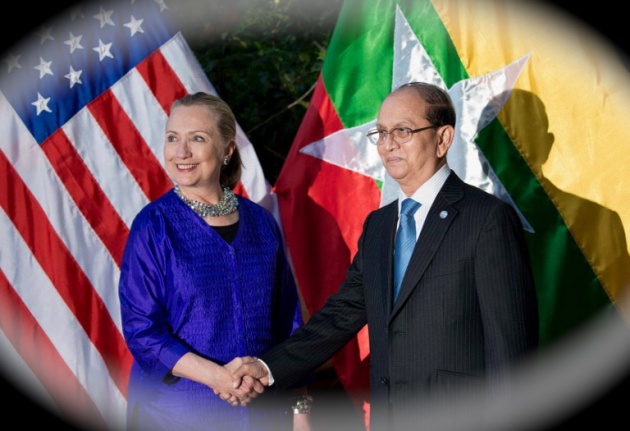
Statement from UN Commissioner for Human Rights:
UN High Commissioner for Human Rights Navi Pillay on Friday raised serious concerns about ongoing human rights violations in Myanmar’s Rakhine state after the violence between the Buddhist and Muslim communities there, urging a prompt, independent investigation.
The latest instability in Rakhine state was triggered on 28 May, when an ethnic Rakhine woman was raped and murdered. This was followed by the killing of 10 Muslims by an unidentified mob on 3 June. According to official figures, over 70,000 people have been displaced in the ensuing violence. At least 78 have died, although unofficial estimates are higher.
“We have been receiving a stream of reports from independent sources alleging discriminatory and arbitrary responses by security forces, and even their instigation of and involvement in clashes,” Pillay said. “Reports indicate that the initial swift response of the authorities to the communal violence may have turned into a crackdown targeting Muslims, in particular members of the Rohingya community."
The High Commissioner said the crisis highlighted the long-standing and systemic discrimination against the Rohingya Muslim community, who are not recognised by the State and remain stateless.
“The Government has a responsibility to prevent and punish violent acts, irrespective of which ethnic or religious group is responsible, without discrimination and in accordance with the rule of law,” Pillay said, expressing dismay at the derogatory language used against the Rohingya by state media, some independent media, and by some users of social networking websites.
She noted earlier commitments by the Government to conduct an investigation, and a recent fact-finding mission by the Myanmar Human Rights Commission.
"I also welcome the Government's decision to allow the Special Rapporteur on the human rights situation in Myanmar access to Rakhine State during his planned mission to Myanmar next week. It is important that those affected from all communities in Rakhine are able to speak freely to the Special Rapporteur," the High Commissioner said. "But while he will be able to make an initial assessment during his one-day visit, this is no substitute for a fully-fledged independent investigation."
She also called on all national leaders to speak out against discrimination, the exclusion of minorities and racist attitudes, and in support of equal rights for all in Myanmar, and stressed that the United Nations was making an effort to protect and assist all communities in Rakhine State.
“Prejudice and violence against members of ethnic and religious minorities run the risk of dividing the country in its commendable national reconciliation efforts, undermine national solidarity, and upset prospects of peace-building," the High Commissioner said.
Top Photo - Courtesy of Dawn.com - Other UN Photo



